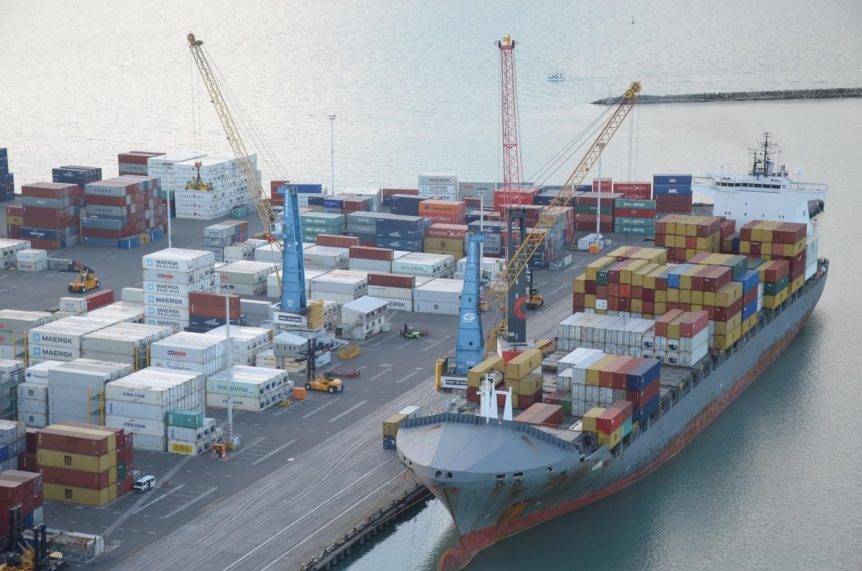Maritime law is a legal field that focuses on the rules and regulations governing issues related to navigable waters such as oceans, rivers, lakes, and streams. It also covers some maritime land-based activities. These include loading and unloading of cargo on ships.
If you or a loved one works in a maritime-related industry, you need to familiarize yourself with this branch of law. Maritime cases can be particularly complex, and the federal court system usually has original jurisdiction over them. This, however, does not mean that it has exclusive jurisdiction. Cases involving boating accidents, personal injuries, maritime-products liability, and cargo damage can be litigated in state or federal courts.
Because of the complexities surrounding these types of claims, you need to consult with the best maritime lawyers to ensure that your rights are protected throughout the litigation process. Here’s everything you need to know when to hire a maritime attorney and the types of cases they handle.
When to Hire a Maritime Attorney
Working on sea vessels and offshore oil rigs comes with its own unique set of risks. People in this industry show up to work every day, trusting that they’ll carry out their day-to-day tasks with no incident.
If you’re one of these people, you would want to know that your employer has done everything in their power to provide a safe working environment for you and your colleagues.
If, in the unfortunate event, an accident does happen, you’ll need to retain the services of a competent maritime attorney to help you hold your employer accountable for their negligence. You will need to be protected and compensated for any suffering or injury incurred while you’re out on the water.
Many maritime law cases involve personal injury or wrongful death claims in major maritime disasters and oil rig accidents. Federal law generally governs claims related to seamen and passengers. On the other hand, claims related to land-based employees who work in the maritime industry all fall under workers’ compensation laws.
It’s worth noting that for most personal injury claims, it does not matter who the at-fault party was in an accident that occurred aboard a sea vessel.
The individuals working on the vessel are protected under “maintenance and cure” rights. This ensures that maritime employees get the compensation and medical care they need to achieve a complete recovery.
Maritime Worker Injuries and Compensation
As mentioned before, there are two principal types of maritime workers.
The first category consists of individuals who qualify as “seamen.” A seaman is defined as an employee who spends a substantial amount of their time working as a captain or crew member aboard a vessel – which could be any type of ship or boat – while it is in navigation.
The second category of workers consists of maritime employees who work on or near the water.
The type of compensation you would be entitled to receive in an injury claim depends on which of the two categories of workers you fall in. On the one hand, if you are a seaman, you are not entitled to workers’ compensation under state law. Instead, you can pursue three different types of compensation as provided for in federal law.
- You can sue your maritime employer for negligence under the Jones Act
- You can sue the vessel’s owner under the maritime doctrine of unseaworthiness
- You would be entitled to maintenance and cure compensation regardless of who was at fault
If, on the other hand, you’re a maritime employee who works on or near the water, you would be covered by the Longshore and Harbor Workers’ Compensation Act. While this federal law may be considered a standard workers’ compensation law, it does have some fundamental differences.
For one thing, it provides a significantly higher compensation to injured workers compared to what state workers’ compensation acts offer. The act also provides coverage for workers with a partial or permanent disability. Most state workers’ compensation acts don’t.
If you suffer an injury in a container ship accident while loading or unloading cargo, for instance, you would be covered under this federal act.
What Happens If You Are Injured in a Cruise Ship Accident

So far, we’ve looked at scenarios where maritime shipping employees suffer injuries in their line of work. What about passengers aboard a cruise ship? What kind of compensation would you be entitled to if you were involved in a cruise ship accident while on vacation?
The first thing you need to be aware of is that your ticket stipulates when and where you can file a personal injury claim. In most cases, the time constraint is set anywhere between three and six months.
Keep in mind as well that most cruise ships are registered outside of the United States. As a result, your lawsuit would have to be filed under the applicable national and international laws. Experienced maritime lawyers are familiar with the intricacies of suing the owners of foreign-registered cruise ships.
Best Maritime Lawyers US for 2021
Here’s a list of the top 10 maritime lawyers in the US for 2021:
| Maritime Lawyer | Firm | ||
| 1 | Andrew Cobos | The Cobos Law Firm | View Profile |
| 2 | Kurt Arnold | Arnold & Itkin | View Profile |
| 3 | Brian J. Pokrywka | Lewis Brisbois Bisgaard & Smith | View Profile |
| 4 | Prince W. Donahoo | Donahoo Law Firm PLLC | View Profile |
| 5 | Paul B. Arenas | Marron Lawyers | View Profile |
| 6 | Ryan Dumm | Schwabe, Williamson & Wyatt | View Profile |
| 7 | Cedric D. Logan | Wheeler Trigg O’Donnell LLP | View Profile |
| 8 | Nola D. Jackson | Werner Law, LLC | View Profile |
| 9 | Katherine S. Strawbridge | Lewis Wagner LLP | View Profile |
| 10 | Robert E. Konchar | Simmons Perrine Moyer Bergman PLC | View Profile |
Get the Best Legal Help
Maritime claims are bound by unique statutes of limitations. This means that injured parties, or their next-of-kin, are required to file their claims within three years, or else they risk getting their claims barred. You’ll need to act fast. Consult an experienced maritime lawyer to explore all the options available to you.
Do you have any legal questions for us? Chat online with a Laws101 attorney right now.
